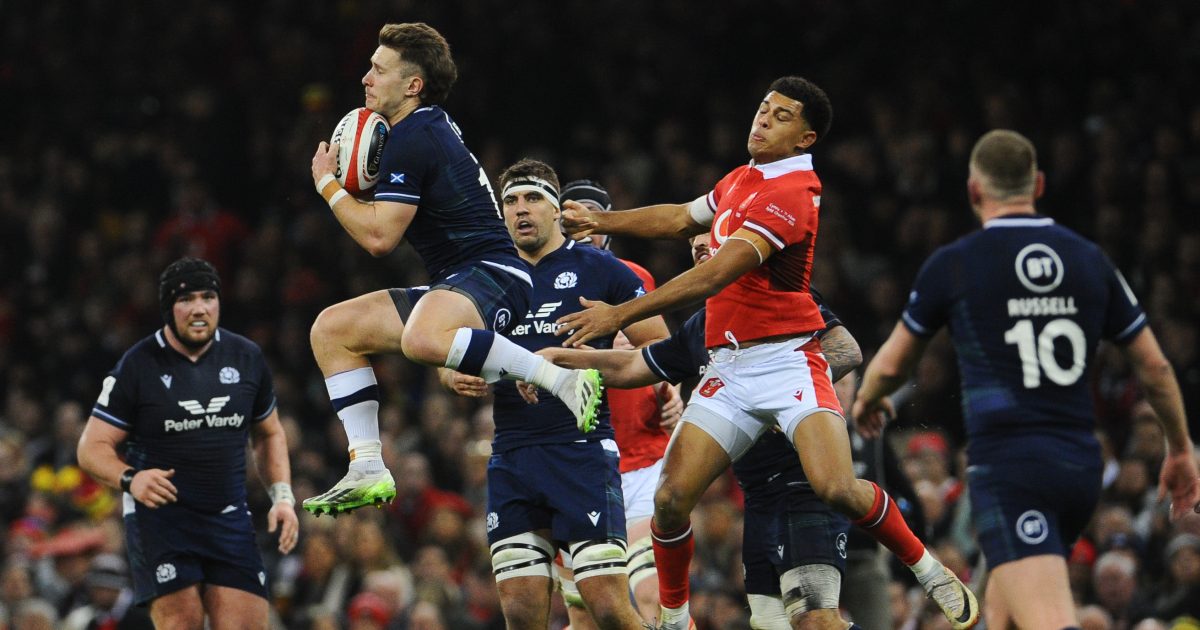The key talking points for Scotland if they want success against France

Scotland welcome France to Murrayfield in round two of the Guinness Six Nations on Saturday.
Here, the PA news agency looks at some key talking points ahead of the Edinburgh showdown.
Chance for Scots to build momentum
Scotland opened a Six Nations with back-to-back wins for the first time last year, and they now have the chance to achieve the feat for a second campaign in succession following last weekend’s narrow 27-26 victory in Wales. Last year, after defeating Wales and England in the first two rounds, they came unstuck across a formidable double-header away to France and at home to Ireland.
This time, their fixtures on match-day three and four look notably less daunting, with England at home followed by Italy away. If they can get the better of Les Bleus on Saturday, Scotland are entitled to fancy their chances of contending for the title.
Can wounded, Dupont-less French summon a response?
After the deflation of their World Cup quarter-final exit on home soil, France failed to get the positive Six Nations starter they were after when they were destroyed 38-17 at home to Ireland last weekend. In mitigation, they played more than half the match in Marseille with 14 men, but the French arrive in Edinburgh with their backs firmly against the wall and in need of a response. They will have to find a way to conjure it without their influential half-back pairing of Antoine Dupont (who has switched to sevens) and Romain Ntamack (injured).
Murrayfield not a happy French hunting ground
If France had their way, they would probably choose to head somewhere other than Edinburgh to try to get back on track. Les Bleus have lost five of their last seven matches at Murrayfield, including their last visit for a World Cup warm-up match in August, when they squandered a 21-3 half-time lead to lose 25-21 to the 14-man Scots. Scotland have won three of the last four Six Nations meetings with the French on their own patch.
Darge leads all Glasgow back-row
Scotland have made three personnel changes from the side that won in Wales, with two of them in the back-row, where they are deemed to have a wealth of options. Last weekend it was Edinburgh flankers Luke Crosbie and Jamie Ritchie who started alongside Glasgow’s Matt Fagerson.
This weekend, Gregor Townsend has opted for the “cohesion” of an all-Glasgow back-row, with recently-appointed Rory Darge fit enough to start his first match in six weeks alongside Fagerson, who shifts to blindside, and Jack Dempsey, who is restored at number eight. Ritchie – who captained the team at the World Cup, drops out of the 23 entirely, with the more versatile Andy Christie preferred on the bench.
Another huge test for Kyle Rowe
At this time last year, when the iconic Stuart Hogg was still wearing the number 15 jersey, Kyle Rowe – battling back from an ACL injury and with just one substitute outing for the national team to his name – would have struggled to envisage himself as Scotland’s starting full-back in the Six Nations. Hogg’s retirement plus injuries to Blair Kinghorn and Ollie Smith have paved the way for him to do just that, however.
The 25-year-old Glasgow back – who predominantly operates as a wing – handled his first start superbly in Wales last weekend, and he will be hoping for a repeat performance on Saturday against the highest-calibre opposition he will have faced in his career.




























